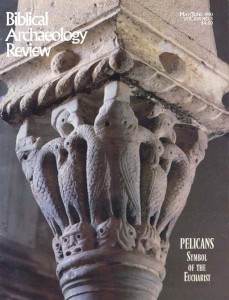Archaeology and the Bible—Understanding Their Special Relationship
The following article has been adapted from Recent Archaeological Discoveries and Biblical Research, by William G. Dever (Seattle: Univ of Washington Press, 1990). As a matter of principal Professor Dever does not write for BAR (see his letter, “Bill Dever Responds,” Queries & Comments, BAR 13:04). He does not object, however, to our printing material otherwise written by him, but not for us. He also requests that his name appear at the end of the article instead of at the beginning. We are happy to comply with Professor Dever’s request.
Despite my love for it, archaeology does have its limitations. One of these is that it can comment only on historical questions, not theological ones—and indeed even then only on certain kinds of historical problems.
The Bible, too, has its limitations as a historical document. It is a composite of diverse genres—myths, folktales, epics, prose and poetic narratives, court annals, nationalist propaganda, historical novellas, genealogies, cult legends, liturgical formulas, songs and psalms, private prayers, legal corpora, oracles and prophecy, homily and didactic material, belles lettres, erotic poetry, apocalyptic and on and on.
Already a library member? Log in here.
Institution user? Log in with your IP address.

